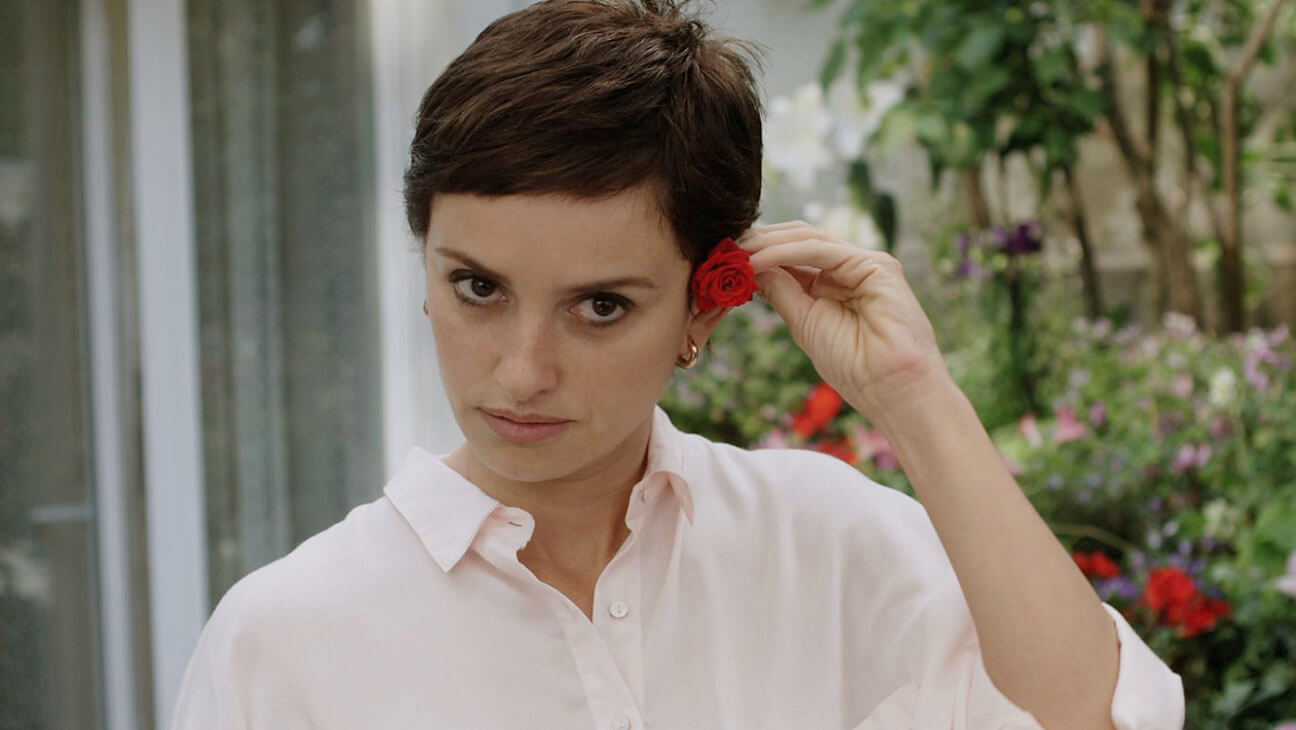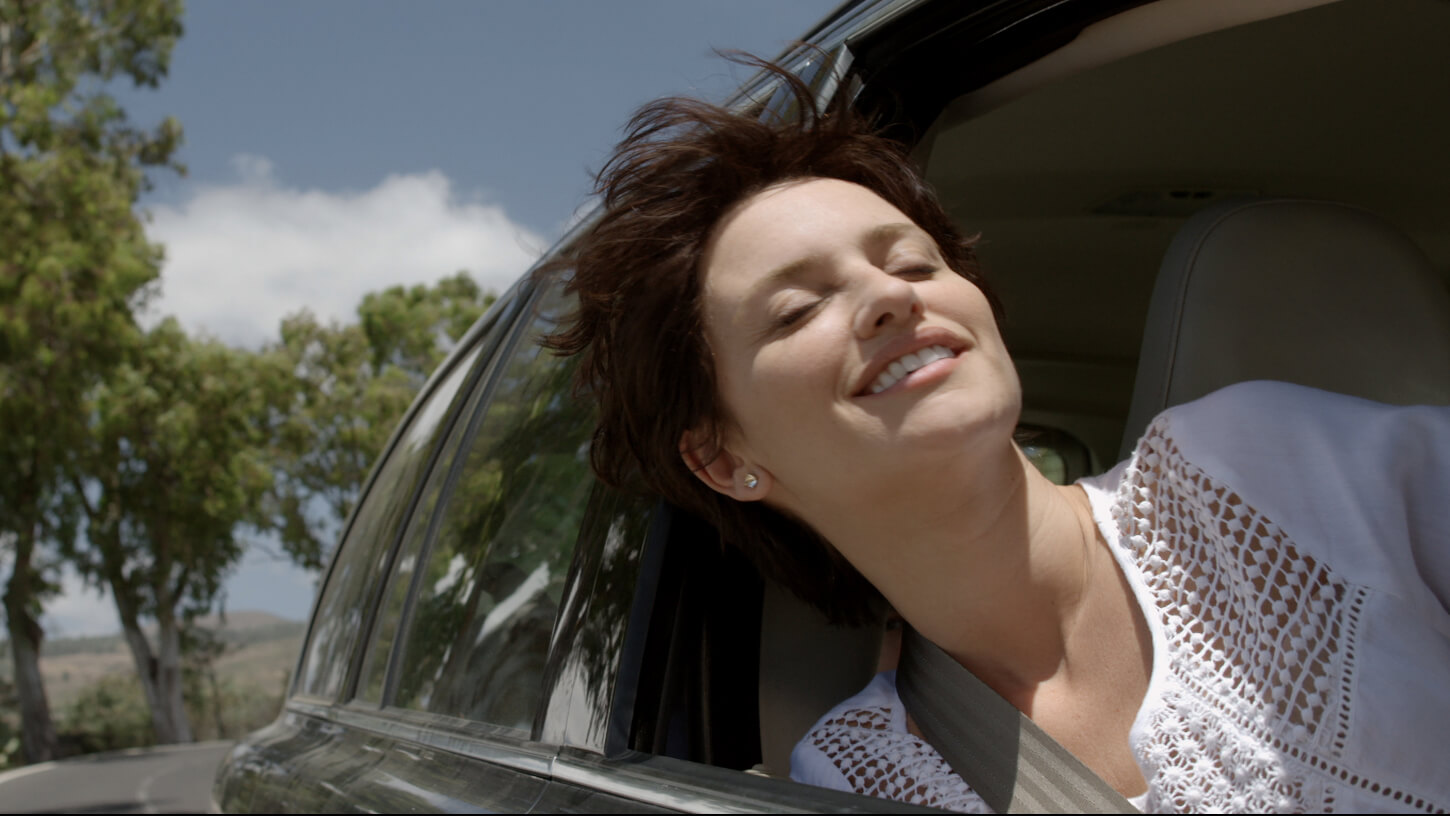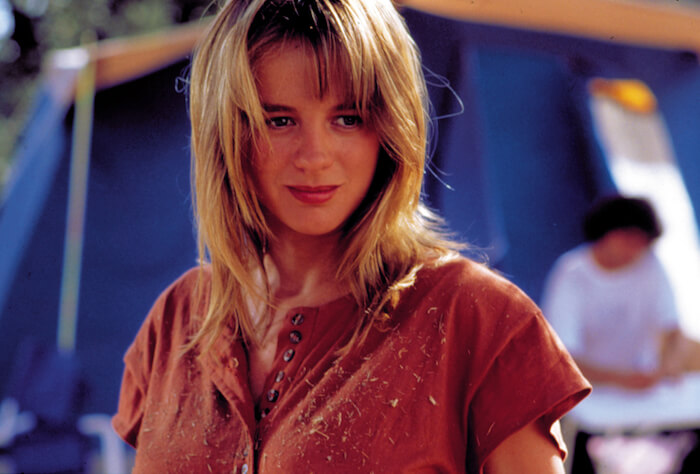“El Maligno”: Talking to Julio Medem About Ma Ma and Melodrama


There is a whit of old-fashionedness to Ma Ma’s shamelessly vehicular nature: this is a wide-canvas weepie resting on the shoulders (or features) of an international cinema icon, and thus a take-it-or-leave-it proposition from the jump. (In Toronto, the 11am press screening was dotted by a great many walkouts, abundant texting, and a few muffled sobs as the film plowed through its bombastic finishing crescendo.) Cruz plays a thirtysomething mother diagnosed with breast cancer, who takes solace in nurturing her soccer prodigy son—in fact, happening to meet and fall in love with a Real Madrid recruiter (Luis Tosar) the same day his wife and daughter die in a coincidence of seemingly divine and/or punitive cruelty.
If Medem has dialed down his signature tactility and softballed the ravages of cancer, the film’s absurdist-tragic probings of fate and coincidence are indivisible from his earlier work. His 1992 debut Vacas (Cows) is an essay on the male ego, with Carmelo Gomez playing three different generations of men in one family, the camera returning to certain vantages to measure reverberations within the viewer from a single act of cowardice—tying itself to the ground not unlike a Basque Blue Velvet. 1995’s La Ardilla Roja concerns J (Nancho Novo), a suicidal former rock star who’s privy to a motorcycle accident, escorting its amnesiac survivor—who happens to be a buxom blonde, played by Suarez—into a relationship built wholly on his fabrications. (Or is she playing along?)
Delusion and escape are themes Medem finds inseparable from the relationship stories he wants to tell, and so, then, must the viewer—making him one of the more persistently love-hate European auteurs working today. I was determined to interview him while we were both in Toronto, but it was (all-too appropriately) not meant to be—at least, for another eight months. The below discussion ultimately took place via conference call, with an interpreter patching Medem through, while he rode a train with intermittent service; I had hoped to talk about form, but on balance found myself settling for themes. Ma Ma is currently playing in New York, and opens in LA and beyond on May 27th.
(Special thanks to Teseo Fournier West, Andrea Salazar, and Rebecca Naughten for their help with this interview.)
I understand you’d been trying to get this movie made for some time. Can you tell me about the difference in Ma Ma before and after Penélope Cruz?
I’ve actually done it backwards. I wrote the script ten years before Penélope was in the picture; when she came on board, I obviously had to re-write the script to adapt it for her: her vitality, her energy, her sense of humor. It was basically a co-partnership, because she was very opinionated about her character, and had a lot of input on the screenplay as well.


Did you have any conflicts or disagreements?
No. But hold on: I’m going to add something else to the last question and on the way, I’ll answer this one too. From the time that Penélope and I were developing Magda together, there was something very important that had to happen within the movie: by starting from the tragedy, we could make a movie that, in a certain way, talks about the appreciation of life—let’s call it a chant to life. And in that aspect, we understood each other; the proposal was very delicate, very difficult, of course. What I have discovered, is that if I liked Penélope Cruz before, her talent, now I clearly idolize her. She has done something higher, more elevated than what I had envisioned. And we were truly, surprisingly comfortable. At a certain moment I thought that it would complicated because of her celebrity; I thought it could overwhelm the character and that at the time of the shoot, she would just not be there. But it was totally the contrary. She’d come to the set, and she would sit me down and say, “Okay then: tell me. Where do you want me to go with this?”, things like that. And in that aspect, as a director, I felt very supported by her, and we made an amazing tandem, to tell you the truth.
Ma Ma is more optimistic than your earlier work, and fixes on Magda’s perspective, with little interference in structure or suspense.
More optimistic? I have a feeling that in my movies I’m always around two topics: one is death, the trance and the proximity of death, how it’s measured, or how it’s in the near horizon—what it does to revitalize life. Within Ma Ma that’s what happens, and another recurrent topic in my work is… well, I always tell love stories. In this case, love begins from what I call el maligno, in this movie there are no antagonistic characters. As a whole the characters are good people that are fighting against an evil—the cancer, right? It brings out the best that they have in them, especially Magda, to be able to get over it.
But el maligno also plays a role in a catharsis for love. In this sense I’m starting to notice I am in a particular place. The main character in Vacas was a person that had already traversed a line made out of shadows, that placed him in a space further away from life, almost next to death. In Tierra, Angel (Carmelo Gomez) felt he was half alive, half dead. In Lovers of the Arctic Circle, eternal love may begin to exist because of death. In Sex and Lucia, love comes from the death of Lorenzo. It is something within all my films one way or another, and in Ma Ma as well.
We’re talking about an almost obstinately strong character; she decides to have a baby, she knows she won’t survive the cancer but she takes it on with gumption. Many of your characters adopt (or attempt and fail to adopt) a paradigm at odds with reality.
It’s a good question. I tend to allow the subconscious to tell me things. Let’s say I separate the rational consciousness, from the subconscious, through a symbolic language… I use dreams, I let them provoke ideas in me. Maybe not voluntarily, but it is true: the trance towards death that happens when you position death, in contrast… The characters there are escaping from a reality that is tragic. So it seems this “escape” is not conscious. When I was younger I wanted to make films that would appear very different—but they are and they aren’t, because the interests are the same.
What kind of films did you imagine yourself making?
When I started shooting Super 8—and this goes back to the subconscious—I realized that by simply placing my camera in front of whatever, capturing that unit of time/space, I noticed that could really get to know myself better, and make the subconscious appear within that frame. In a way that’s just what happened. What happens is I’m very careful at the moment of having that first idea. Sometimes I have a lot of ideas, but there will be the one that I will pursue—I’d tell myself, I’m going for this one. I didn’t imagine what kind of stories the films would be, but they tend to be ideas that I realize will take a lot out of my subconscious.
Has there been a time that you had the pressure to make a film for other people? I mean…
No. To tell you the truth, I have considered myself privileged from the beginning. When I went to Madrid to find a producer, a part of me would say: It’s going to be impossible to find a producer for a film that is called Cows, from a new Basque director; and on top of that, a story that was so atypical, with a high level of strangeness and liberty. I had the luck to find a producer that was starting strong in Spain, and from there I was able to shoot the films I wanted to make.
The Lacanian, Freudian aspect of your work has been written about. In your short film Patas en la Cabeza a young man announces his intention to write a novel backwards, to “arrive at the superficial.” Does a work of art always betray its maker?
On the one side, of course I know that Freud was the first one to fascinate me–in The Ego and the Id in 1923, his analysis of dreams. As a matter of fact I studied medicine and I wanted to be a psychiatrist. I also love Nietzsche. But within these influences, let’s say, I also want to allow myself always to be a child, a spoiled child, that moves and jumps and that wishes to be really free. He’s still there, and I have yet to abandon him.


Male callousness is a factor in Ma Ma—a question really—but it’s the literal subject of your debut Vacas, and subtextually it organizes the “chapters” of Lucia y el Sexo. There’s the “moral rape” in The Red Squirrel—wherein two people fall into a real relationship that’s founded on J’s imagination, which is to say his insecurity.
To tell you the truth I’m not really sure how to explain it, but it is evident that this is repeated in several characters. In Tierra, Angel is afraid of death, deep down he is a coward. Above all, this happens within the contrast of women, in a way or for some reason that I don’t know.
I have a natural tendency towards strong female characters, profound female characters, in which I believe I bring out my own feminine side, identify myself moreso than the male ones. As time goes by it has been happening more and more, to the point that I wrote a novel a couple of years ago about Aspasia de Mileto, the most influential woman in classical Greece. She was with Pericles—the great politician of Athenian democracy, when the West was born. It took me five years to do research and two to write it. In the book, Aspasia recounts her life, from the ages of ten to forty-two, in the first person. So I put myself in her persona for many years, to be able to tell the story from her own perspective.
There is a hint of it in Ma Ma. At a certain time Magda reads a novel out loud called Yo Aspasia; I have changed the cover and the author name—I put my grandfather’s—but it’s my book. Starting from Lucia, all of my main characters have been strong women.
I feel like nihilism is having a moment, and there is perhaps something unfashionable about your work: the fate, the coincidence, the absurdist tragedy.
It’s a complicated subject, but my comment is about the doubt that I have for my own future. How can I say this? Sometimes I doubt, but I keep on creating my stories. I am at a moment where I write a lot, and I archive. I love writing, but by then I’m already doing cinema. I pre-visualize perfectly the cinematographic language that each script of mine needs to have, so I’m also in search of my own evolution. I want to move things within me as much as I can. In general I don’t like that much what is being made—but then of course there are movies that totally fascinate me. As I was trying to say earlier: I’m seeing how I can have a continuity towards what I do, I know that I continue to be privileged because of my freedom. Ma Ma is being sold all around the world through small distributors. The circuits are small, but I have a viewership all over the world, a few unconditionals. The number might be few, but they help keep me going.
I will interview you any chance I get. Is it true that your next project is a sequel to Sex and Lucia?
It might be. It has been written, and we are looking for financing.
You might also like 




















